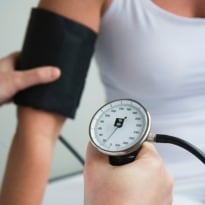World Hypertension Day was initiated by The World Hypertension League (WHL), to spread awareness about hypertension. It is commemorated every year on 17th May. Commonly known as high blood pressure, it has become more of a lifestyle disease these days. With the theme of 'Know your Blood Pressure', WHL aims to make the public aware about detection, control and prevention of arterial hypertension.Previous studies have established a link between certain foods you eat and how they affect your blood pressure levels. High blood pressure is a medical condition where the arteries have elevated blood pressure. Blood pressure is the force of pushing the blood against the artery walls. Every time the heart beats, blood is pumped to the whole body through the arteries. The higher the blood pressure, the harder it becomes for the heart to pump blood.Amongst various factors like smoking, obesity, stress, old age etc which are known to cause hypertension, salt has popped up as a major perpetrator. Specially, processed foods that secretly contain high sodium levels are being questioned.
Browsing through a variety of ready-to-eat foods in a supermarket can be quite an exciting experience. From snacks to dinner to a post-dinner munch, there is a lot for you to try. Doctors, however, warn that the high sodium content of processed foods can push you towards hypertension early on.According to a study by the George Institute for Global Health India, a public health NGO, 73 percent of the 7,124 food products they sampled had not displayed the salt or sodium content on their labels. Although it is not mandatory under India's food packaging rules, experts nevertheless feel that this information can help consumers keep a tab on their salt consumption."Excess salt intake can lead to high blood pressure, coupled with lack of exercise, obesity, stress and tension," says S. Chatterjee, Senior Consultant, Internal Medicine, Apollo Hospital. Although those with no family history of hypertension are less likely to encounter the diseases, it is becoming a "growing problem" in India owing to unhealthy lifestyles."Packaged food, processed food and ready-to-eat meals all have high salt content. They are also high in cholesterol and oil, and regular consumption leads to weight gain and obesity, and in turn, hypertension," Chatterjee said. Hypertension increases the risk of cardiovascular diseases, kidney ailments and strokes.Changes in lifestyle, late working hours, high stress levels, lack of exercise, and increase in the consumption of junk or processed foods, has put the younger generation at risk."Earlier it was the 50 or 50 plus age-group that suffered with such problems, now the age-profile has fallen to 30-34. Even adolescents are at a risk because childhood obesity is becoming common," commented K.K. Saxena, Cardiologist, Apollo Hospital.Agreed Manoj Kumar, cardiologist at the Max Super Speciality Hospital, adding that every third or fourth person in India is hypertensive. "Nowadays I get patients as young as 25 who are hypertensive. These are mostly people working in high-stress jobs like call centres, where sleep is often compromised with and there is easy access to packaged food most of the time,
It is also pertinent to mention here that these lifestyle changes also lead to obesity and type 2 diabetes," he added.Experts have estimates that the number of patients in India with high blood pressure will rise from 140 million in 2008 to 215 million by 2030 along with an increased risk of heart attacks, strokes, kidney ailments and other diseases.According to WHO, the recommended salt intake per day is five grams. While regular food may be prepared with just the right amount of salt, other food items like bakery products, pickles, chutneys and sauces, papad, non-alcoholic beverages and canned food often contribute to the "extra" consumption of salt. Raw salt over salads and fruits should be taken with caution or avoided altogether."It is advisable for anyone above the age of 30 to go for regular blood pressure screening. There are no symptoms and, therefore, if such a condition is detected during screening, the cause can be detected and mended before it is too late," Manoj Kumar said."Also, an early detection means that lifestyle changes can be made to treat the disease, and this is the cheapest way to do so. Hypertension is a chronic illness and drug treatment is a lifelong process. Just 50 percent hypertensive people are aware of their illness, and therefore early detection is an absolute must," he added.WHO has recommended a global target of reducing premature mortality caused by non-communicable diseases by 25 percent by 2020 by cutting salt intake by 30 percent.
Browsing through a variety of ready-to-eat foods in a supermarket can be quite an exciting experience. From snacks to dinner to a post-dinner munch, there is a lot for you to try. Doctors, however, warn that the high sodium content of processed foods can push you towards hypertension early on.According to a study by the George Institute for Global Health India, a public health NGO, 73 percent of the 7,124 food products they sampled had not displayed the salt or sodium content on their labels. Although it is not mandatory under India's food packaging rules, experts nevertheless feel that this information can help consumers keep a tab on their salt consumption."Excess salt intake can lead to high blood pressure, coupled with lack of exercise, obesity, stress and tension," says S. Chatterjee, Senior Consultant, Internal Medicine, Apollo Hospital. Although those with no family history of hypertension are less likely to encounter the diseases, it is becoming a "growing problem" in India owing to unhealthy lifestyles."Packaged food, processed food and ready-to-eat meals all have high salt content. They are also high in cholesterol and oil, and regular consumption leads to weight gain and obesity, and in turn, hypertension," Chatterjee said. Hypertension increases the risk of cardiovascular diseases, kidney ailments and strokes.Changes in lifestyle, late working hours, high stress levels, lack of exercise, and increase in the consumption of junk or processed foods, has put the younger generation at risk."Earlier it was the 50 or 50 plus age-group that suffered with such problems, now the age-profile has fallen to 30-34. Even adolescents are at a risk because childhood obesity is becoming common," commented K.K. Saxena, Cardiologist, Apollo Hospital.Agreed Manoj Kumar, cardiologist at the Max Super Speciality Hospital, adding that every third or fourth person in India is hypertensive. "Nowadays I get patients as young as 25 who are hypertensive. These are mostly people working in high-stress jobs like call centres, where sleep is often compromised with and there is easy access to packaged food most of the time,
It is also pertinent to mention here that these lifestyle changes also lead to obesity and type 2 diabetes," he added.Experts have estimates that the number of patients in India with high blood pressure will rise from 140 million in 2008 to 215 million by 2030 along with an increased risk of heart attacks, strokes, kidney ailments and other diseases.According to WHO, the recommended salt intake per day is five grams. While regular food may be prepared with just the right amount of salt, other food items like bakery products, pickles, chutneys and sauces, papad, non-alcoholic beverages and canned food often contribute to the "extra" consumption of salt. Raw salt over salads and fruits should be taken with caution or avoided altogether."It is advisable for anyone above the age of 30 to go for regular blood pressure screening. There are no symptoms and, therefore, if such a condition is detected during screening, the cause can be detected and mended before it is too late," Manoj Kumar said."Also, an early detection means that lifestyle changes can be made to treat the disease, and this is the cheapest way to do so. Hypertension is a chronic illness and drug treatment is a lifelong process. Just 50 percent hypertensive people are aware of their illness, and therefore early detection is an absolute must," he added.WHO has recommended a global target of reducing premature mortality caused by non-communicable diseases by 25 percent by 2020 by cutting salt intake by 30 percent.
Advertisement







